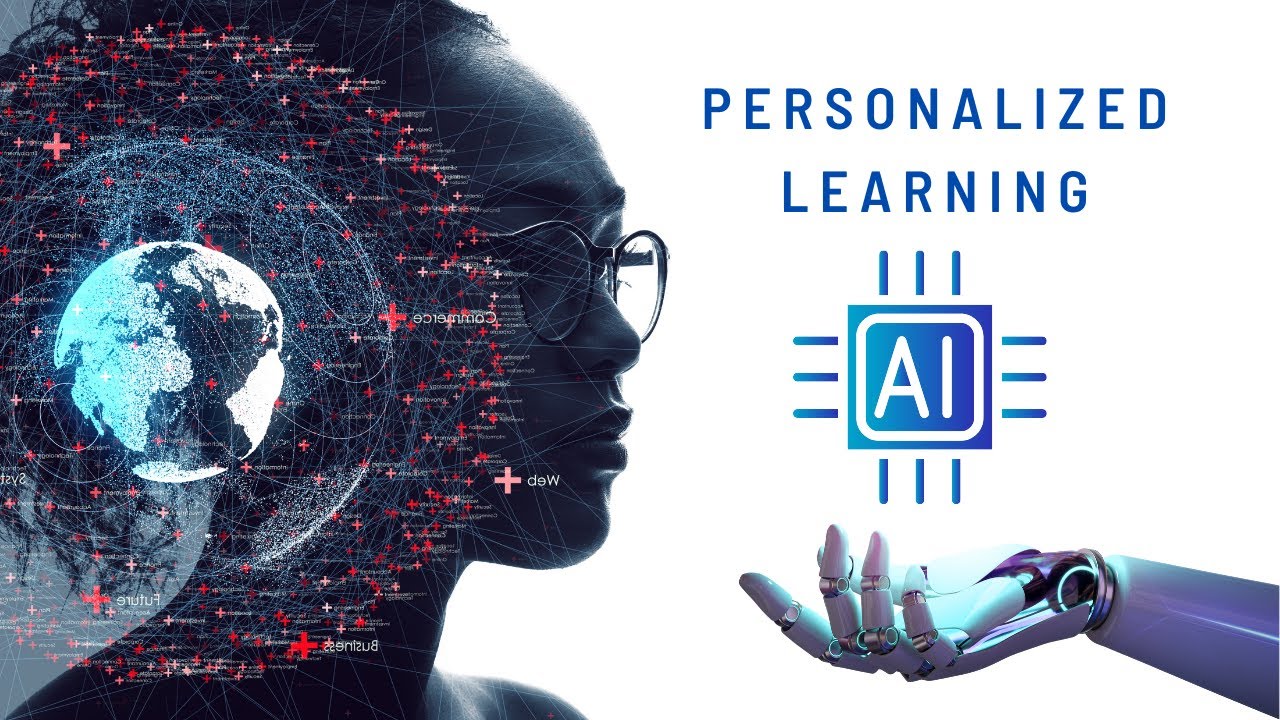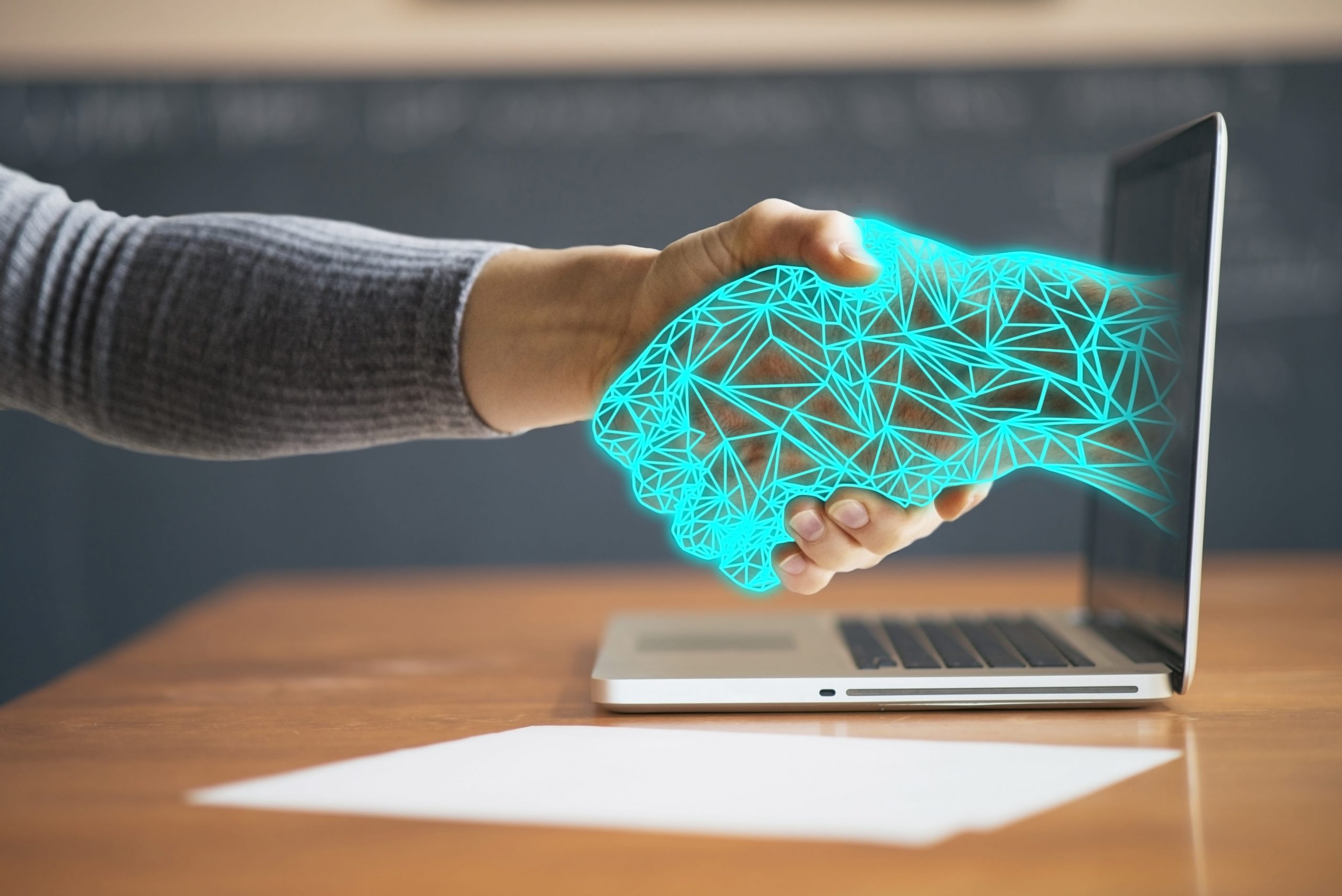Personalized Learning with AI: Revolutionizing Education for Every Learner
Personalized learning with AI represents a transformative shift in education, offering tailored learning experiences as unique as each student. AI-powered systems can recognize individual student needs, interests, and learning patterns to create customized educational journeys, much like a skilled teacher adapting their approach for every learner.
Imagine a classroom where every student receives the exact support they need, precisely when they need it. Through AI-powered adaptive learning platforms, students can progress at their own pace while receiving immediate feedback and personalized recommendations. Whether a student excels in visual learning, needs extra practice with certain concepts, or benefits from hands-on activities, AI can adjust the learning experience to match their unique style.
From intelligent tutoring systems that provide step-by-step guidance to sophisticated assessment tools that track progress in real-time, AI is reshaping how students learn and how teachers teach. These technologies don’t replace teachers – instead, they amplify teachers’ ability to understand and support each student’s individual learning journey.
Yet, as promising as this educational revolution appears, it also brings important challenges we must address. Questions about data privacy, ensuring fair and unbiased AI systems, and maintaining meaningful human connections in learning environments remain at the forefront of discussions about AI in education.
This article explores the remarkable potential of AI-powered personalized learning, examines real-world success stories, and tackles the critical considerations that will shape its future. Whether you’re an educator, parent, or student, understanding these developments is crucial as education evolves to meet the needs of every learner.
Key Benefits of AI in Personalized Learning
Learning platforms powered by artificial intelligence are fundamentally reshaping how students engage with educational content. Through sophisticated algorithms that analyze thousands of data points from student interactions, AI creates truly individualized learning experiences that adapt to each student’s unique needs and capabilities.
Perhaps the most transformative benefit is AI’s ability to dynamically adjust the learning pace. Unlike traditional classroom settings where teachers must maintain a single pace for dozens of students, AI-powered platforms can automatically adapt to individual learning speeds, ensuring students are neither overwhelmed nor under-challenged. When a student struggles with a concept, the system slows down and provides additional support. Conversely, when concepts are quickly mastered, the pace accelerates to maintain engagement.
The customization of learning materials represents another groundbreaking advantage. Rather than relying on one-size-fits-all textbooks, AI analyzes each student’s learning style, interests, and performance data to deliver tailored content. Visual learners might receive more diagrams and videos, while text-oriented students get detailed written explanations. This level of personalization helps students engage more deeply with the material in ways that resonate with their natural learning preferences.
Through sophisticated algorithms, AI can provide instant, personalized feedback to students, far beyond what is possible manually. This immediate response not only aids in the learning process but also allows educators to identify areas where students may be struggling, enabling timely intervention.
Yale Wave Research
The provision of instant feedback stands out as a particularly powerful benefit. Traditional assessment methods often involve delays between submission and feedback, but AI systems can provide immediate, detailed responses to student work. This rapid feedback loop allows students to correct misconceptions quickly and reinforces correct understanding while the material is still fresh in their minds.
Evidence supports the effectiveness of these AI-driven approaches. According to research from the U.S. Department of Education, students receiving personalized, adaptive instruction outperformed their peers by 70% compared to those receiving non-adaptive instruction. This dramatic improvement in learning outcomes demonstrates the tangible impact of AI-enhanced personalized learning.
Beyond individual benefits, AI’s capacity for automation frees up valuable teacher time previously spent on routine tasks like grading and progress tracking. This allows educators to focus on what they do best – providing nuanced guidance, emotional support, and complex problem-solving assistance that AI cannot replicate.
Challenges in Implementing AI for Personalized Education
The promise of AI-powered personalized learning faces several critical hurdles that educators and institutions must carefully navigate. Privacy concerns are at the forefront, as AI systems require vast amounts of sensitive student data to function effectively. Each time a student interacts with an AI learning platform, it collects information about their learning patterns, academic performance, and behavioral tendencies, raising serious questions about data security and student privacy rights.
Consider a scenario where an AI system tracks a student’s reading speed, comprehension levels, and areas of difficulty across various subjects. While this data helps create personalized learning paths, it also creates a detailed digital footprint that requires robust protection. As University College London researchers note, institutions must implement comprehensive safeguards to prevent unauthorized access and potential misuse of this sensitive information.
Algorithmic bias presents another significant challenge in AI-based education systems. These biases can manifest in various ways, from recommending different learning resources based on a student’s demographic background to making incorrect assumptions about learning capabilities. For instance, if an AI system is trained primarily on data from students in well-resourced urban schools, it may struggle to provide effective recommendations for students in rural or underfunded districts.
The digital divide compounds these challenges, creating a two-tiered educational system where some students have full access to AI-powered learning tools while others are left behind. This disparity extends beyond mere internet access; it encompasses the quality of devices, technical support availability, and digital literacy levels among both students and educators. Schools in economically disadvantaged areas often lack the infrastructure necessary to implement sophisticated AI learning systems effectively.
Financial constraints pose yet another hurdle. Implementing AI in education requires substantial investment in technology infrastructure, software licenses, and staff training. While large, well-funded institutions might readily absorb these costs, smaller schools and districts often struggle to allocate resources for AI implementation. Moreover, the ongoing costs of maintaining and updating these systems can strain already tight educational budgets.
The rapid deployment of AI in educational settings raises significant ethical concerns, particularly related to the protection of personal data and the risks of algorithmic bias. This calls for a thoughtful and strategic approach to ensure that AI serves as a tool for enhancement rather than a detriment to the fundamental goals of learning.
These challenges, while significant, are not insurmountable. Success in implementing AI for personalized education requires a careful balance between leveraging technological innovation and protecting student interests. Schools must develop comprehensive data privacy policies, invest in bias detection and mitigation strategies, and work to ensure equitable access to AI-powered learning tools across all student populations.
Technologies Enabling AI-Driven Personalized Learning


AI-powered adaptive learning systems are fundamentally reshaping how students learn by creating personalized educational experiences. These systems analyze each student’s learning patterns, progress, and preferences to deliver customized content at the right pace and difficulty level. Adaptive learning platforms dynamically adjust to meet individual student needs.
At the core of these systems are sophisticated machine learning algorithms that process vast amounts of student data to identify learning patterns and make intelligent recommendations. These algorithms track factors like how quickly students grasp new concepts, where they struggle, and what teaching methods work best for them. This data-driven approach helps deliver learning materials in ways that maximize student engagement and comprehension.
| Technology | Key Features | Benefits | Challenges |
|---|---|---|---|
| AI-powered Adaptive Learning Systems | Personalized content delivery, real-time feedback, dynamic pacing | Improved engagement, tailored learning experiences, immediate feedback | Data privacy concerns, algorithmic bias, high implementation costs |
| Natural Language Processing (NLP) | Interactive dialogue, understanding student questions, providing explanations | Enhanced engagement, better grasp of complex topics, natural interactions | Ensuring accuracy, handling diverse language inputs, computational demands |
| Intelligent Tutoring Systems | One-on-one tutoring, targeted practice exercises, immediate feedback | Personalized support, timely intervention, efficient learning paths | Complexity in development, need for extensive data, potential biases |
| Virtual Reality (VR) | Immersive educational experiences, realistic simulations, interactive learning | Hands-on practice, deeper understanding, engaging learning environment | High cost of VR equipment, technical setup, accessibility issues |
Natural language processing (NLP) technology enables more natural interactions between students and AI learning systems. Through NLP, these platforms can understand student questions, provide conversational responses, and offer explanations in clear, accessible language. This creates a more engaging learning experience while helping students better grasp complex topics through interactive dialogue.
Intelligent tutoring systems bring these technologies together to function as personalized digital teachers. These systems combine adaptive learning algorithms with natural language capabilities to provide one-on-one tutoring tailored to each student. They can identify knowledge gaps, suggest targeted practice exercises, and offer immediate feedback to keep students on track.
The real power comes from how these technologies work in concert. The adaptive learning system identifies what content to present, machine learning algorithms determine how to present it effectively, and NLP enables natural student-system interactions. This technological synergy creates a comprehensive learning environment that adapts to individual needs while maintaining high engagement.
Working alongside human teachers, these AI technologies enhance rather than replace traditional instruction. They handle routine tasks like grading and progress tracking, freeing educators to focus on providing the nuanced guidance and support that only humans can deliver. This human-AI collaboration represents an exciting evolution in how we approach personalized education.
Real-World Applications of AI in Personalized Learning


A creative fusion of AI and interactive experiences. – Via fusemachines.com
Artificial intelligence is creating personalized learning experiences that adapt to each student’s unique needs and pace. Two prominent platforms showcase how AI is transforming traditional education into dynamic, individualized journeys of discovery.
Take Khan Academy, for instance. This platform uses AI to analyze learning patterns across millions of students engaging with their educational content. When a student tackles algebra problems, the AI system monitors their progress, identifying where they excel or struggle. For example, if a student masters linear equations but struggles with quadratic functions, the platform adjusts to provide additional support and practice in that specific area.
Similarly, Duolingo has transformed language learning through sophisticated AI algorithms that customize the learning path for each user. The platform’s AI engine analyzes various data points – from how quickly users complete exercises to their error patterns – to create a uniquely tailored curriculum. When a learner struggles with conjugating Spanish verbs in the past tense, for instance, the system generates more practice exercises focused on that specific challenge.
What makes these AI-powered platforms particularly effective is their ability to provide instant, personalized feedback. Unlike traditional classroom settings where students might wait days for assignment feedback, these systems offer immediate guidance. When a student makes a mistake, the AI analyzes the type of error and provides targeted explanations and additional practice opportunities designed for that student’s learning style.
The adaptive nature of these platforms extends beyond just content delivery. They also adjust the pace of learning based on individual progress. For example, if a student demonstrates quick mastery of basic concepts, the AI system accelerates their progression to more challenging material. Conversely, if a student needs more time with foundational concepts, the system slows down and provides additional support without the pressure of keeping up with peers.
Beyond these established platforms, emerging AI applications in education are pushing the boundaries further. Virtual tutors now engage students in natural conversations, providing one-on-one support at any time of day. AI-powered assessment tools can evaluate complex assignments and provide detailed feedback that helps students understand not just what they got wrong, but why, and how to improve.
Artificial Intelligence has the potential to influence practically every aspect of education and society as it rapidly expands both inside and outside of school.
CoSN Report on AI in K-12 Education
These real-world applications demonstrate how AI is not just supplementing traditional education – it is transforming how we approach learning. By creating personalized experiences that adapt to each learner’s needs, AI is helping to ensure that every student has the opportunity to reach their full potential.
Future Directions and Potential of AI in Personalized Learning
Personalized learning is on the brink of transformation, driven by advancements in artificial intelligence. Sophisticated technologies are reshaping how students engage with educational content in personal ways.
Natural language processing (NLP) capabilities are evolving to enable more nuanced interactions between learners and AI systems. As highlighted in recent research, next-generation NLP will power intelligent tutoring systems that can engage in natural conversations, provide instant feedback, and adapt their communication style to each student’s comprehension level. These systems will move beyond simple question-and-answer formats to facilitate deeper conceptual understanding through dynamic dialogue.
Adaptive learning algorithms are becoming increasingly sophisticated in their ability to analyze student performance patterns and customize educational pathways. Future iterations will incorporate multiple data streams – from learning progress and engagement metrics to emotional states and preferred learning modalities – to create hyper-personalized experiences. These algorithms will continuously refine their understanding of each learner’s needs, automatically adjusting content difficulty, pacing, and presentation format in real-time.
Virtual reality opens up extraordinary possibilities for immersive educational experiences that were previously impossible. Students will be able to conduct virtual chemistry experiments, walk through historical events, or practice medical procedures in safe but realistic environments. The integration of AI with VR will enable these simulations to respond intelligently to student actions, providing contextual guidance and adapting scenarios based on individual learning objectives.
These technologies will work together to create holistic learning environments that seamlessly blend different modalities and approaches. A student struggling with a complex physics concept might receive an AI-generated explanation, followed by an interactive VR demonstration, with the system continuously assessing understanding and adjusting its approach based on real-time feedback.
While these advancements hold immense promise, they also raise important considerations around equity and access. The education community must work to ensure these powerful learning tools become available to all students, not just those in well-resourced institutions. Only then can we fully realize the transformative potential of AI-driven personalized learning.
Conclusion and SmythOS’s Role in Personalized Learning
AI-powered personalized learning stands at the forefront of educational transformation, offering unprecedented opportunities to enhance how we teach and learn. Research confirms that when implemented effectively, these systems can significantly boost knowledge acquisition and learning efficiency across diverse student populations.
The integration of artificial intelligence in education goes far beyond simple automation; it enables truly adaptive learning experiences that evolve with each student’s progress. According to the World Economic Forum, AI can dramatically enhance education by automating administrative tasks, allowing educators to focus more deeply on meaningful student interactions and personalized guidance.
SmythOS emerges as a powerful solution in this landscape, offering robust tools that address the core challenges of implementing AI in education. Its visual builder environment empowers educators to create sophisticated learning systems without extensive technical expertise, while enterprise-grade security ensures student data remains protected. The platform’s seamless integrations with existing educational infrastructure make it particularly valuable for institutions seeking to implement personalized learning at scale.
The future of education lies in embracing these technological advances while maintaining focus on student success. AI-driven systems like SmythOS don’t aim to replace teachers but rather augment their capabilities, providing them with powerful tools to deliver more effective and engaging learning experiences. This symbiotic relationship between educators and AI technology paves the way for continuous skill development and lifelong learning.
Successful implementation of AI in education will require thoughtful collaboration between educators, administrators, and technology providers. By leveraging platforms like SmythOS that prioritize user-friendly design and robust security, institutions can create learning environments that adapt to individual student needs while fostering engagement and achievement. The path to educational transformation is clear – it’s time to embrace the power of AI-driven personalized learning.
Last updated:
Disclaimer: The information presented in this article is for general informational purposes only and is provided as is. While we strive to keep the content up-to-date and accurate, we make no representations or warranties of any kind, express or implied, about the completeness, accuracy, reliability, suitability, or availability of the information contained in this article.
Any reliance you place on such information is strictly at your own risk. We reserve the right to make additions, deletions, or modifications to the contents of this article at any time without prior notice.
In no event will we be liable for any loss or damage including without limitation, indirect or consequential loss or damage, or any loss or damage whatsoever arising from loss of data, profits, or any other loss not specified herein arising out of, or in connection with, the use of this article.
Despite our best efforts, this article may contain oversights, errors, or omissions. If you notice any inaccuracies or have concerns about the content, please report them through our content feedback form. Your input helps us maintain the quality and reliability of our information.
